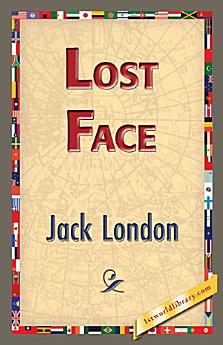Lost Face
Peb 2007 · 1st World Publishing
E-book
132
Mga Page
family_home
Kwalipikado
info
reportHindi na-verify ang mga rating at review Matuto Pa
Tungkol sa ebook na ito
It was the end. Subienkow had travelled a long trail of bitterness and horror, homing like a dove for the capitals of Europe, and here, farther away than ever, in Russian America, the trail ceased. He sat in the snow, arms tied behind him, waiting the torture. He stared curiously before him at a huge Cossack, prone in the snow, moaning in his pain. The men had finished handling the giant and turned him over to the women. That they exceeded the fiendishness of the men, the man's cries attested.Subienkow looked on, and shuddered. He was not afraid to die. He had carried his life too long in his hands, on that weary trail from Warsaw to Nulato, to shudder at mere dying. But he objected to the torture. It offended his soul. And this offence, in turn, was not due to the mere pain he must endure, but to the sorry spectacle the pain would make of him. He knew that he would pray, and beg, and entreat, even as Big Ivan and the others that had gone before. This would not be nice. To pass out bravely and cleanly, with a smile and a jest-ah! that would have been the way. But to lose control, to have his soul upset by the pangs of the flesh, to screech and gibber like an ape, to become the veriest beast-ah, that was what was so terrible.
Tungkol sa may-akda
One of the pioneers of 20th century American literature, Jack London specialized in tales of adventure inspired by his own experiences. London was born in San Francisco in 1876. At 14, he quit school and became an "oyster pirate," robbing oyster beds to sell his booty to the bars and restaurants in Oakland. Later, he turned on his pirate associates and joined the local Fish Patrol, resulting in some hair-raising waterfront battles. Other youthful activities included sailing on a seal-hunting ship, traveling the United States as a railroad tramp, a jail term for vagrancy and a hazardous winter in the Klondike during the 1897 gold rush. Those experiences converted him to socialism, as he educated himself through prolific reading and began to write fiction. After a struggling apprenticeship, London hit literary paydirt by combining memories of his adventures with Darwinian and Spencerian evolutionary theory, the Nietzchean concept of the "superman" and a Kipling-influenced narrative style. "The Son of the Wolf"(1900) was his first popular success, followed by 'The Call of the Wild" (1903), "The Sea-Wolf" (1904) and "White Fang" (1906). He also wrote nonfiction, including reportage of the Russo-Japanese War and Mexican revolution, as well as "The Cruise of the Snark" (1911), an account of an eventful South Pacific sea voyage with his wife, Charmian, and a rather motley crew. London's body broke down prematurely from his rugged lifestyle and hard drinking, and he died of uremic poisoning - possibly helped along by a morphine overdose - at his California ranch in 1916. Though his massive output is uneven, his best works - particularly "The Call of the Wild" and "White Fang" - have endured because of their rich subject matter and vigorous prose.
I-rate ang e-book na ito
Ipalaam sa amin ang iyong opinyon.
Impormasyon sa pagbabasa
Mga smartphone at tablet
I-install ang Google Play Books app para sa Android at iPad/iPhone. Awtomatiko itong nagsi-sync sa account mo at nagbibigay-daan sa iyong magbasa online o offline nasaan ka man.
Mga laptop at computer
Maaari kang makinig sa mga audiobook na binili sa Google Play gamit ang web browser ng iyong computer.
Mga eReader at iba pang mga device
Para magbasa tungkol sa mga e-ink device gaya ng mga Kobo eReader, kakailanganin mong mag-download ng file at ilipat ito sa iyong device. Sundin ang mga detalyadong tagubilin sa Help Center para mailipat ang mga file sa mga sinusuportahang eReader.








